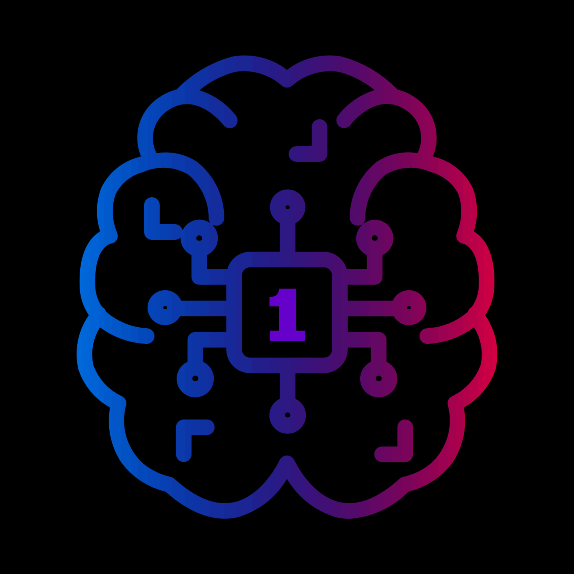Yes, Artificial Intelligence (AI) software is intended to be available across a variety of devices and platforms. With technological breakthroughs, AI software may now be utilized on a wide range of devices, including smartphones, PCs, and even smart home devices. Furthermore, AI apps are designed to be interoperable with many operating systems, making them available across several platforms. This enables consumers to access and interact with AI software across several devices, offering a consistent user experience regardless of the device or platform utilized.
List of 20 Best Artificial Intelligence Software
Copywritely is a SEO content optimization tool that enhances the effectiveness of your website. By identifying and providing solutions for any content gaps, it ensures the delivery of high-quality, original text, resulting in increased traffic, conve...Read More Copywritely
PikaVue is an advanced software platform designed to streamline data visualization, offering live analytics and customizable dashboard options. Its intuitive interface allows for effortless conversion of complex data into valuable insights, empowerin...Read More pikaVue
1min.AI is a AI solution for your business needs. Our comprehensive platform offers a wide range of features and models, eliminating the need for multiple tools and subscriptions. Enhance your workflow and maximize the power of artificial intelligenc...Read More 1min.AI
Experience the power of Revoicer - an AI voice generator that effortlessly transforms text into lively expressions with human emotions. Choose from a diverse range of 80+ voices in multiple languages to add a touch of authenticity to your content. Sa...Read More Revoicer
Nichesss is the leading software that excels in various functionalities, providing a reliable and trustworthy solution. Its consistent performance ensures top-notch efficiency and precision, making it the preferred choice for users. With Nichesss, yo...Read More nichesss
Equally AI is the premier no-code solution for businesses seeking to create and maintain websites that comply with worldwide accessibility standards and regulations such as WCAG, ADA, Section 508, and EN 301 549. Equally AI empowers you with robust t...Read More Equally AI
AtOnce is a leading-edge software that utilizes cutting-edge technology to drive transformative results for businesses. By implementing an innovative approach, the software streamlines processes, increases efficiency, and fosters significant progress...Read More AtOnce
HeadlinesAI solution for creating engaging headlines for your content on popular platforms like YouTube, Medium, Reddit, and IndieHackers. With just a few clicks, generate a variety of attention-grabbing headlines by simply selecting your desired pla...Read More HeadlinesAI
Blakify solution for converting text into engaging audio. Our software offers a variety of voices and supports multiple languages, making it ideal for content creators looking to enhance accessibility and streamline their work. With its high-quality,...Read More Blakify
Braina - an exceptional AI software for Windows PC that supports multiple languages. It serves as a virtual voice recognition tool, efficiently transforming speech into text. Boasting a wide range of over 100 languages, this software simplifies workf...Read More Braina
Spinner Chief - a content generation tool driven by advanced AI technology. With its extensive local API requests and multilingual capabilities, this software offers seamless integration with external platforms. Through its impressive bulk content ma...Read More Spinner Chief
QuickBooks Online, the premier accounting software for entrepreneurs and business owners. Streamline your financial management with its intuitive interface, top-notch security measures, and cutting-edge features such as Online bank connectivity and W...Read More QuickBooks Online
Quetab - an AI-driven platform revolutionizing productivity for students, tutors, content creators, and enterprises. With cutting-edge technology, Quetab enables seamless creation, sharing, and monetization of knowledge and skills. Bid farewell to co...Read More Quetab
New Relic is a APM monitoring software designed for software developers and IT professionals. Its comprehensive features include memory and CPU optimization, code profiling, database query performance, web browser rendering analysis, and error tracki...Read More New Relic
GrowEasy - your all-in-one DIY tool for creating effective lead generation campaigns on Facebook and Instagram. With a simple click, GrowEasy handles the crucial elements such as ad design, messaging, audience selection, and form building, so you can...Read More GrowEasy
DupDub - a content creation platform developed by Mobvoi, Inc. With a wide range of tools including text and speech generation, AI avatars, and video editing capabilities, DupDub is the perfect solution for converting ideas into engaging content. Whe...Read More DupDub
MicMonster is a text-to-speech tool that converts written text into realistic audio. With an extensive library of more than 600 voices in 140 languages, MicMonster offers the flexibility to adjust pitch, speed, and pronunciation according to your mul...Read More MicMonster
Resemble AI is a voice technology platform designed for businesses seeking top-of-the-line features. From realistic voice cloning to instant speech transformation and deepfake audio detection, Resemble AI offers a comprehensive suite of tools. With s...Read More Resemble AI
Rytr is an AI-powered writing platform designed to simplify and improve the content creation process. With millions of satisfied users, it offers a variety of tools including grammar correction, text editing, and SEO optimization. These features help...Read More Rytr
ShortlyAI is a writing assistant designed to enhance content creation. With its smart interface and advanced AI, this top-tier tool streamlines the writing process and produces high-quality text with ease. Say goodbye to writers block and hello to a...Read More ShortlyAI
Learn More About Artificial Intelligence Software
- What Is Artificial Intelligence Software?
- What Are The Recent Trends in Artificial Intelligence Software?
- Benefits Of Using Artificial Intelligence Software
- Important Factors To Consider While Purchasing Artificial Intelligence Software?
- What Are The Key Features to Look for in Artificial Intelligence Software?
- Why Do Businesses Need Artificial Intelligence Software?
- How Much Time Is Required To Implement Artificial Intelligence Software?
- What Is The Level of Customization Available In Artificial Intelligence Software?
- Which Industries Can Benefit The Most From Artificial Intelligence Software?
- Conclusion
What Is Artificial Intelligence Software?
Artificial intelligence (AI) software is a sort of computer program that uses complex algorithms and rule-based systems to simulate human intellect and cognitive capabilities. AI software is supposed to solve problems, make decisions, analyze natural language, and recognize patterns with little or no human participation.
One of the most important properties of AI software is its capacity to learn and adapt to new information, allowing it to become more efficient and accurate over time. This is accomplished through the use of machine learning, a subset of AI that allows software to improve its performance through data analysis and pattern recognition. AI software is widely employed in many fields, including banking, healthcare, marketing, and education.
AI software may be used in finance to assess market patterns and make recommendations on investment strategy. In healthcare, it can help with illness diagnosis and therapy. In marketing, it may help with customized advertising and client relationship management. When purchasing AI software, there are various variables to consider.
First and foremost, the sort of AI software required will be determined by the precise task or challenge at hand. Predictive analytics, natural language processing, and computer vision are all examples of popular categories. Before making a purchase, be sure you understand the capabilities and limits of each model. Another critical consideration is the data that will be utilized to train the program.
The more diversified and high-quality the data, the more effective the AI program will be. Businesses should also examine the software provider's quality of technical assistance and the ease with which it can integrate with current systems.
What Are The Recent Trends in Artificial Intelligence Software?
Artificial intelligence (AI) software continues to advance at a rapid pace, resulting in new trends. As a buyer, it is critical to remain current on these developments in order to make an informed selection when acquiring AI software.
Here are some of the latest trends in the field of AI software.
1. Integration With Other Technologies: Artificial intelligence is no longer a stand-alone technology. AI is rapidly being combined with other technologies, including big data, machine learning, natural language processing, and the internet of things (IoT). This interface enables AI software to evaluate large volumes of data and create meaningful insights, increasing its power and versatility.
2. Industry Expansion: While AI is already employed in banking, healthcare, and retail, it is spreading to new areas such as education, agriculture, and transportation. This trend is driving demand for AI software suited to specific sector demands, giving consumers more alternatives to select from.
3. Focus On Explainable AI: As AI is increasingly used in crucial decision-making processes, there is rising concern about transparency and accountability. As a result, there is a growing preference for explainable AI, in which the program can offer reasons for its actions. This is especially significant in areas like healthcare and banking, where decision-making explanations are critical.
4. The Rise Of AI-powered Chatbots: As AI technology becomes more widely adopted, chatbots become more intelligent. These virtual assistants employ natural language processing to communicate with consumers, resulting in a more efficient and personalized client experience. This trend is especially common in the customer service and e-commerce businesses, where chatbots can handle simple questions and tasks, freeing up human staff to address more complicated issues.
5. Transition To AI On The Edge: Historically, AI software required strong computers or servers to function. However, with the advent of edge computing, AI algorithms may now be executed on smaller devices such as smartphones, smart speakers, and cameras. This development allows AI software to handle data in real time, making it more efficient and useful for a variety of applications.
Benefits Of Using Artificial Intelligence Software
Artificial intelligence software, or AI software, has grown in popularity in recent years due to its capacity to streamline and automate processes, enhance decision-making, and boost overall productivity. AI software has several uses across sectors, including virtual assistants and chatbots, predictive analytics, and machine learning, making it a crucial tool for enterprises of all sizes.
So, what are the unique advantages of adopting AI software? Let's have a closer look.
1. Increased Efficiency: One of the primary advantages of AI software is its capacity to perform repetitive and monotonous activities, freeing up valuable time for staff to focus on more important duties. This leads to enhanced efficiency and production, which results in cost savings for enterprises.
2. Improved Decision-Making: AI software has superior data analytics capabilities, allowing it to swiftly scan and analyze large volumes of data in order to find patterns and trends. This allows organizations to make more educated, data-driven decisions, resulting in greater results and performance.
3. Personalization: AI software can collect and analyze client data, enabling firms to tailor interactions and services to individual tastes and habits. This can lead to more customer satisfaction and loyalty, resulting in more sales and money.
4. Automating activities: AI software can automate a wide range of activities, from inventory and supply chain logistics to customer service questions, minimizing the possibility of human mistake and freeing up time for people to focus on higher level tasks.
5. enhanced Customer Service: With the introduction of virtual assistants and chatbots, AI software has substantially enhanced customer service interactions. These AI-powered solutions can give 24-hour help, manage several requests at once, and deliver individualized replies, leading to increased customer satisfaction and retention.
6. Predictive Capabilities: AI software may use data to estimate future events, like as demand or client behavior. This enables firms to make proactive decisions and remain ahead of the competition.
7. Cost Savings: Because of its potential to automate operations, increase efficiency, and eliminate human error, AI software may result in considerable cost savings for enterprises. This makes it a worthwhile investment for any firm wanting to boost its bottom line.
Important Factors To Consider While Purchasing Artificial Intelligence Software?
When it comes to purchasing artificial intelligence software, there are numerous crucial elements to consider to ensure that you make an informed selection. These aspects will influence not just the software's functioning, but also its usability and impact on your organization.
1. Purpose And Wants: Before you begin your search for artificial intelligence software, you must first establish your goals and wants. This involves determining the activities and procedures you want the software to help with, as well as any unique features or functions that are critical to your firm. This will help you limit down your selections and select the program that best meets your requirements.
2. Technical Requirements: Artificial intelligence software can be sophisticated, requiring particular technical specs to function properly. These may include hardware requirements, operating system compatibility, and integration possibilities with your current systems. Make careful to properly check these technical factors before making a purchase to avoid compatibility problems.
3. User-Friendly Interface: When selecting software, make sure it has an easy-to-use and understandable interface. This not only saves your team time and effort, but it also ensures that the software is seamlessly integrated and adopted into your present process.
4. Customization and Scalability: As your company expands and advances, so will your demand for artificial intelligence skills. It is critical to select software that is not only configurable to your present needs, but also expandable to meet future requirements. This prevents you from having to invest in new software in the near future.
5. Data Security and Privacy: The usage of artificial intelligence creates the necessity to handle sensitive data. It is critical to select software that emphasizes data security and privacy, particularly if you will be working with sensitive client information. The software should have safeguards in place to prevent data breaches and guarantee compliance with data protection rules.
6. Customer assistance and Training: When adopting new software, it is critical to provide consistent customer assistance and training to guarantee a seamless transition and efficient use of the product. Look for a software vendor who provides extensive training and continuous support to ensure that your staff gets the most out of the product.
7. Cost and ROI: When choosing artificial intelligence software, evaluate the cost as well as the prospective return on investment (ROI). Before making a selection, evaluate the features and benefits of each option, as well as the long-term impact on your organization. By considering these aspects, you can make an informed decision on which artificial intelligence software is most suited to your company's needs. Remember to conduct comprehensive research and evaluate your alternatives to ensure that you are selecting the best software for your individual needs and goals.
What Are The Key Features to Look for in Artificial Intelligence Software?
Artificial intelligence (AI) software is gaining popularity in a variety of sectors due to its capacity to handle difficult jobs and enhance decision-making processes. However, with so many alternatives available, it can be difficult to decide which are ideal for your personal requirements. To make an informed selection, below are the essential elements to look for in AI software:
1. Machine Learning Capabilities: One of the most important aspects of AI software is its capacity to learn from data and increase performance over time. Look for software that uses machine learning techniques like deep learning, natural language processing, and predictive modeling to deliver precise and efficient outcomes.
2. Flexibility and Adaptability: AI software must be able to adjust to changing data and settings in order to deliver accurate insights. Look for software that can be customized and integrated with current systems to fit your unique needs.
3. Natural Language Processing: AI software must be able to read and evaluate human language in order to generate meaningful insights from unstructured data. This functionality is essential for applications like chatbots, virtual assistants, and sentiment analysis.
4. Real-time Analytics: In today's fast-paced corporate environment, quick insights are essential. Look for AI software that can analyze data and deliver actionable insights in real time, allowing you to make rapid, educated decisions.
5. Visualization and Reporting: The ability to show data in a visually attractive manner is critical for comprehending complicated data sets. Look for software that has dynamic visuals and full reporting capabilities to help you effectively comprehend and disseminate information.
6. Scalability: As your firm expands, your AI requirements may change. Look for software that can manage massive datasets and scale to meet your expanding requirements.
7. Data Security & Privacy: Given the increase in cybersecurity risks, data security and privacy should be prioritized. To secure your data, look for AI software that has strong security features and complies with privacy rules.
8. User-Friendly Interface: AI software should be simple and intuitive to use, especially for non-technical people. Look for software with a simple and user-friendly design to provide a smooth learning curve for your staff.
9. Customer assistance: As with any program, it is critical to have dependable customer assistance in the event of an issue. Look for AI software companies who give good customer support and tools to help you fully realize the program's potential.
Why Do Businesses Need Artificial Intelligence Software?
In today's fast-paced and competitive business environment, firms are continuously looking for methods to increase their efficiency, productivity, and overall performance. This is where AI software comes into play. AI software is a strong tool for simulating human intelligence and automating operations through data learning and prediction.
It analyzes vast volumes of data using powerful algorithms and machine learning techniques, identifying patterns and providing important insights that may assist organizations in making data-driven choices. One of the primary reasons firms want AI software is to obtain a competitive advantage. With the emergence of big data and the rising complexity of company processes, people have found it practically difficult to manually process and evaluate all accessible data.
AI software helps firms to manage massive amounts of data while also uncovering hidden patterns and trends that would otherwise go undiscovered. Furthermore, AI software may streamline and optimize a variety of corporate processes, resulting in increased productivity and cost savings. It may automate repetitive and time-consuming operations, giving staff more time to focus on more complicated and strategic duties.
This not only boosts production but also lowers the likelihood of human error, which may be costly for enterprises. Furthermore, AI software may help firms make more informed and data-driven decisions. By analyzing data and offering insights, AI software may assist firms in identifying possible hazards, opportunities, and areas for progress. This enables better forecasting, planning, and decision-making, resulting in increased corporate performance.
Another advantage of AI software is its capacity to customize client interactions. By analyzing client data, AI software may learn about individual tastes and habits, allowing firms to provide tailored products or services. This not only enhances consumer happiness, but it also boosts loyalty and retention.
How Much Time Is Required To Implement Artificial Intelligence Software?
The implementation time for artificial intelligence (AI) software varies based on a number of factors, including the solution's complexity, the size of the business, and the availability of data and resources. Implementing AI software often takes a few weeks to many months. First and foremost, it is critical to recognize that AI software is not a plug-and-play option. It takes a great amount of time and effort to incorporate into an organization's current systems and procedures.
This is because AI software must be educated and adapted to meet the unique demands of the organization, which might take some time. The first step in implementation is to gather and prepare data. This entails acquiring important data and cleaning it to verify its validity and correctness. This stage may take some time, depending on data availability and quality.
Once the data is ready, the AI software must be taught with machine learning techniques. Depending on the intricacy of the solution, this stage might take a few weeks to several months. During this period, the program will continually learn and improve, which is critical to its efficacy.
After the training is completed, the software must be incorporated into the organization's systems and operations. This can also take some time and may necessitate the involvement of IT specialists to guarantee a successful integration.
Finally, before the AI software is fully installed, it must be tested and verified to verify accuracy and efficacy. This procedure can take anything from a few weeks to several months, depending on the size of the organization and the number of tests necessary. To summarize, the time required to integrate AI software is an important consideration to consider when making a purchasing choice.
To calculate a realistic implementation timeframe, it is critical to understand the organization's needs as well as the complexity of the solution. Working closely with the AI software supplier and devoting adequate time and resources can lead to a successful and efficient installation process.
What Is The Level of Customization Available In Artificial Intelligence Software?
Artificial intelligence (AI) software is a sophisticated technology that uses algorithms and machine learning to simulate human intellect and perform a variety of jobs. With its enhanced capabilities, AI software has emerged as a crucial tool for organizations seeking to automate processes, improve decision-making, and gain a competitive advantage. When selecting AI software for your organization, one critical factor to consider is the degree of customisation offered. In this buyer's guide, we'll look at the many levels of customisation in AI software and how they might help your firm.
1. Customizable AI Software: Configurable AI software allows customers to customize pre-built models and settings to meet their individual requirements. This degree of customisation is useful for firms with a unique use case or industry demand. Configurable AI software allows you to change the algorithms, data sets, and rules to get more accurate results for your organization.
2. Customizable AI software: Customizable AI software takes personalization to the next level by allowing customers to build and train their own AI models. This degree of customisation is appropriate for firms that demand highly tailored AI solutions, such as those in the healthcare or finance sectors. Customizable AI software provides enterprises with comprehensive control and flexibility over their AI models, allowing them to solve complicated challenges and modify the algorithms to their unique requirements.
3. Personalized AI Software: Personalized AI software takes customisation to the next level by leveraging user data and behavior to create a more personalized experience. This form of artificial intelligence software is widely utilized in the marketing and e-commerce industries, where organizations may employ personalized suggestions and predictive analytics to target customers with relevant items and services.
4. White Label AI Software: White label AI software is a completely configurable solution that can be rebranded and sold by enterprises as their own. This degree of customisation is appropriate for firms who wish to provide AI solutions to their clients without investing in creating their own software. White label AI software enables firms to apply their branding and tailor the capabilities to their clients' exact requirements.
Which Industries Can Benefit The Most From Artificial Intelligence Software?
Artificial intelligence (AI) software is transforming industries across the board, offering organizations innovative, data-driven solutions to improve operations and increase productivity. While AI software can aid all businesses, some are more likely to benefit from its capabilities. In this buyer's guide, we'll look at the industries that can most benefit from integrating AI software.
1. Healthcare: The healthcare business offers several potential for AI software to improve patient care, reduce costs, and streamline operations. AI-powered systems may help with accurate diagnosis and treatment planning, analyze massive amounts of medical data to predict health outcomes, and automate mundane administrative duties, allowing healthcare practitioners to focus on patient care. In addition, AI technology may help identify possible health hazards and provide patients with individualized treatment strategies.
2. Finance: The banking business demands precision and accuracy when managing massive amounts of data, making it a great choice for AI technology. AI software may speed financial procedures, reduce human error, and increase fraud detection. AI software may provide financial organizations with useful insights and enhance decision-making processes, ranging from automated investment recommendations to stock market trend predictions.
3. Retail: AI technology is transforming the retail industry by giving vital insights into consumer behavior and preferences. To minimize stockouts and overstocking, merchants may use AI technologies to tailor marketing efforts, optimize pricing tactics, and estimate inventory demands. AI-powered chatbots improve the customer experience by offering immediate and tailored support.
4. Manufacturing: Artificial intelligence technology is revolutionizing the industrial industry by automating processes and streamlining operations. AI-powered solutions may improve supply chain management, track equipment performance, and anticipate maintenance requirements. This leads to less production downtime, higher product quality, and better inventory management.
5. Transportation: AI software, particularly self-driving cars, has the potential to significantly help the transportation business. AI-powered self-driving cars can increase road safety, save transportation costs, and optimize traffic flow. Furthermore, AI technology may help transportation organizations optimize their logistics and supply chain management.
Conclusion
Finally, investing in artificial intelligence software may help businesses and organizations streamline operations and make data-driven choices. As with any investment, you must carefully analyze your company's particular demands and conduct extensive research on the available possibilities.
Consider the features and capabilities available, as well as the cost and possible return on investment. Also, make sure you select a recognized and trusted company with outstanding customer service. With the proper AI software, your business can remain ahead of the competition and achieve success in the fast changing digital market. Choose wisely and use the potential of AI to create new opportunities for your business.
Artificial Intelligence Software FAQ's
Which Industries Can Benefit The Most From Artificial Intelligence Software?
Is Artificial Intelligence Software Future-Proof and Adaptable to Emerging Technologies Like Ai, Blockchain or Iot?
Yes, artificial intelligence software is future-proof and adaptable to upcoming technologies like as AI, blockchain, and the Internet of Things. AI software is continually changing and learning, making it flexible enough to embrace new technologies as they arise. Furthermore, many AI software businesses are incorporating blockchain and IoT technologies into their platforms to better data management and get more efficient and accurate results. This makes AI software a useful and adaptable tool that will continue to improve and stay on the cutting edge of technological breakthroughs.
Is There a Free Trial Offered to Assess Artificial Intelligence Software Before Committing?
Yes, many Artificial Intelligence (AI) software businesses provide free trials for consumers to evaluate the program before making a purchase. These free trials normally last 7 to 14 days and allow users to evaluate the software's features and functions. This enables potential clients to have a better grasp of how the product operates and if it fits their requirements before making a commitment. It is always suggested that you take advantage of these free trials before making a choice to invest in AI software.
Does Artificial Intelligence Software Offer Data Security Features And Meet Regulatory Compliance Standards?
Yes, most AI software solutions have data security measures and are designed to fulfill regulatory compliance requirements. These characteristics include data encryption, secure authentication procedures, and access controls. This protects sensitive data used in AI processes against illegal access, abuse, and alteration. Furthermore, many AI software companies follow industry rules and compliance standards, such as GDPR and HIPAA, to ensure the privacy and security of user data.
Can Artificial Intelligence Software Integrate Seamlessly with Existing Tools and Platforms?
Yes, most Artificial Intelligence (AI) software is intended to connect smoothly with existing tools and platforms, ensuring a smooth and efficient transition. This is made feasible via APIs and other integration mechanisms, which enable the AI software to collaborate with other systems and use their data. This integration has the potential to improve the capabilities and efficiency of existing tools and platforms, hence increasing their power and intelligence.






















